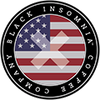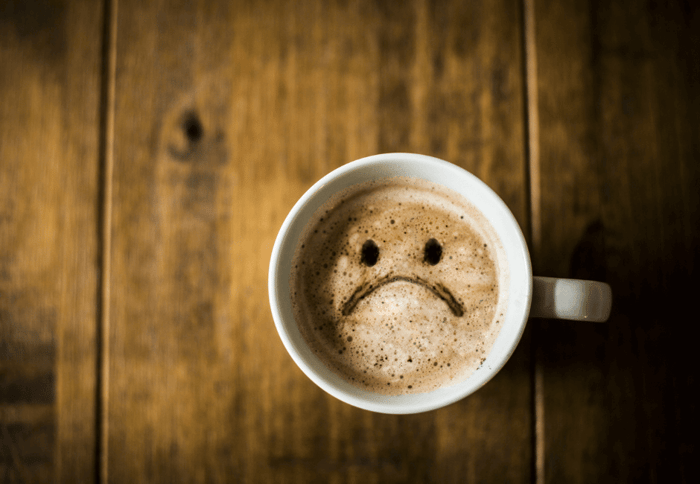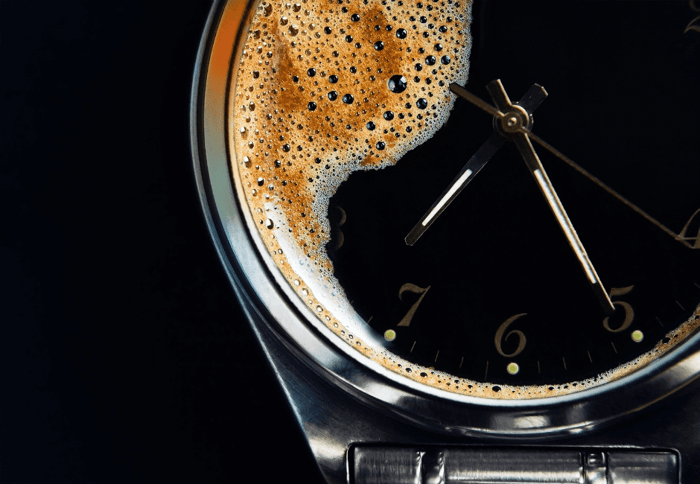Coffee's a pretty awesome beverage, ain't it? It's got a bit of everything. Stimulant, flavor, antioxidants…
But then, you have some folks even saying it's a depressant.
Usually, they're the same people who say energy drinks are “good for you,” instead of awful for you. Or the ones who loudly interrupt your YouTube videos trying to sell you some coffee alternative made of fungus or something. (Cough.)
So, what gives? Is coffee a depressant?
Well, let's take a look at what a depressant actually is.
What Actually is a Depressant, Anyway? (and is Coffee One?)
A depressant is a drug that slows down the central nervous system, reducing nervous or functional activity.
These drugs slow down the communication between the brain and the body, reducing arousal, alertness, reaction time, and stimulation in general. A depressant is the exact opposite of a stimulant—which speeds up the central nervous system.
In vastly oversimplified terms, a depressant basically "slows down your brain" to some degree.
Now, coffee doesn't exactly fit that bill. It can't even squeeze into that bill, even if it holds its breath and tries really hard.
Coffee doesn't reduce stimulation, because the caffeine in coffee is a stimulant.
Caffeine speeds up the central nervous system, increases alertness, and gives you a nice little energy boost. Not exactly the effects of a depressant, is it?
In fact, coffee is so far from being a depressant that it's often used to counteract the effects of depressants. That's why you'll sometimes see people drinking coffee to recover from a hangover—the caffeine assists in counteracting the drowsiness, headache, and mental fog caused by the lingering depressant effects of alcohol.
The Adenosine Situation
Let's look at adenosine, which is a natural chemical in your brain that makes you feel tired.
Caffeine blocks adenosine from binding to its receptors.
Adenosine makes you feel tired. Caffeine blocks adenosine. Caffeine is in coffee. So coffee helps you not feel tired.
Hardly the work of "a depressant," wouldn't you say?
In a related fact, drinking coffee—and the glorious caffeine contained therin—is significantly associated with a decreased risk of depression. (Source)
Alcohol is a classic example of a depressant. And as any coffee lover knows, caffeine and alcohol aren't exactly in the same ballpark. They aren't even in the same league. They aren't even... You get the idea.
The Bottom Line
So, to sum it up: no, coffee is not a depressant.
At all.
It's a delicious, antioxidant-loaded beverage that can help improve your mood and give you that much-needed boost of energy to get through the day, get things done, and maybe even have a little fun along the way.
You might feel depressed if you drink coffee that sucks, but that's on you and your choices in life. I can't help you there.
But as far as coffee being a depressant? Nah.
Coffee's the good stuff.
So drink a strong cup of coffee, get out there, get some shit done—and do something great.
Just don't interrupt my YouTube videos with your mushroom coffee alternative nonsense, k? Thanks.




